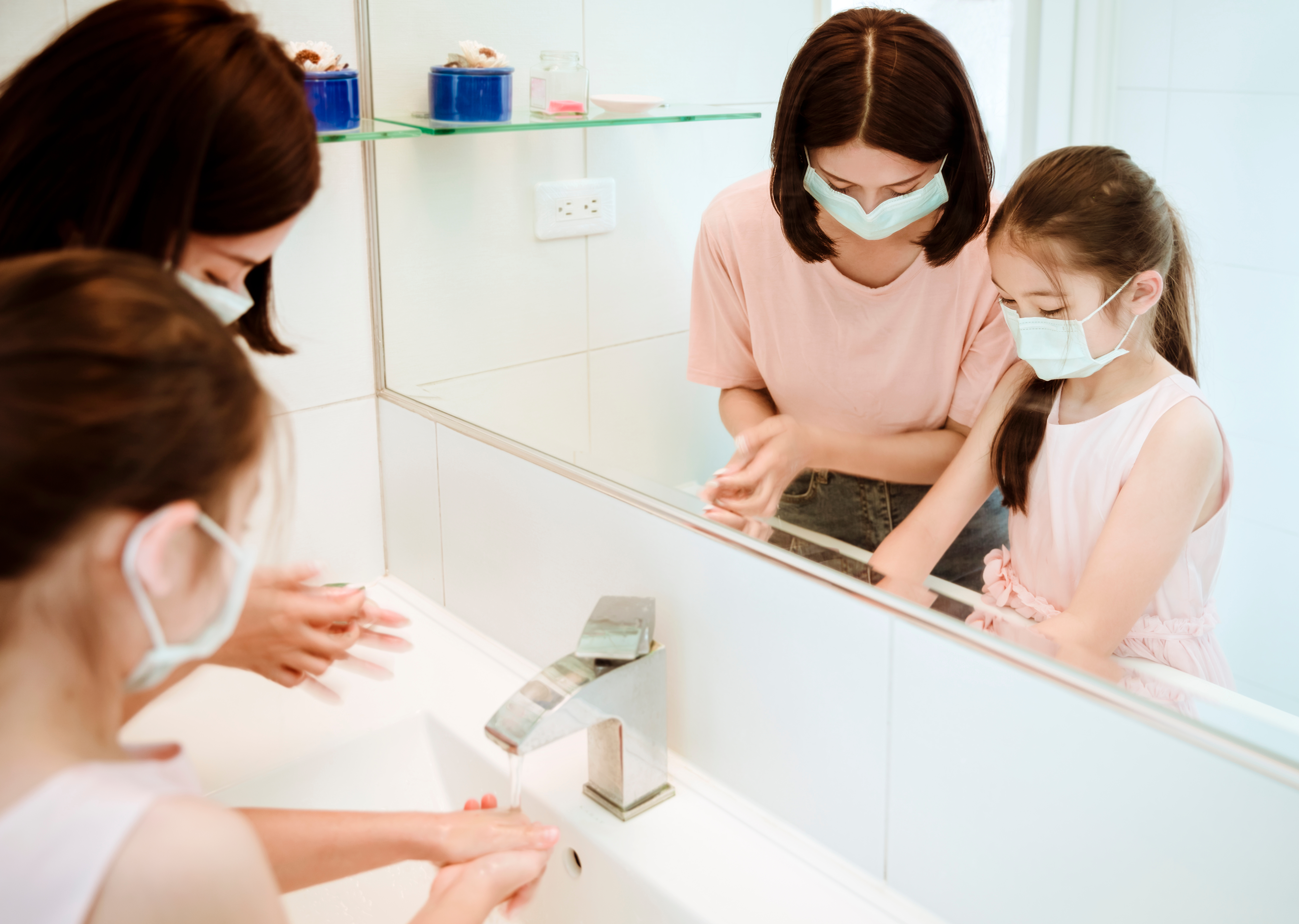
The COVID-19 outbreak made us rethink our daily routines, the roles each of us play in preserving public health, and much more. And while the future is still uncertain, it's safe to say that many of the behaviors we've adopted over the past year will serve us long after the pandemic is over.
Read on for tips from Dr. Daniela Accurso of Summit Health's Family Medicine team about the habits that are worth holding on to for the long term.
1. Wear a Face Covering in Public
"As more people get vaccinated and numbers begin to drop, the most important message is: Don't let your guard down," urges Dr. Accurso. "We still have a lot of work to do and we can get there if we stay the course and do what we know works." Once the pandemic ends, consider wearing a mask under a few circumstances: if you're sick but must go out for essential supplies; as a safeguard when coming in contact with someone who's sick; and if you're immunocompromised.
2. Practice Good Hand Hygiene
As the World Health Organization says, hands are the primary pathways of germ transmission. Properly washing your hands with soap and water for at least 20 seconds can help you avoid harmful germs. In times when soap and water aren't readily available, always keep hand sanitizer with at least 60 percent alcohol with you. "Being proactive, not reactive, will be the key to moving forward in avoiding another wave," Dr. Accurso explains. "Our actions now will benefit us down the road." You should practice good hand hygiene:
- After using the restroom
- After coughing and sneezing
- Before making and eating food
- After touching animals
3. Wash Produce and Reusable Bags
Washing fruits and vegetables removes bacteria and contaminated soil. Simply soak them in a basin of water for up to two minutes, then run them under lukewarm water while gently rubbing the surfaces. (You can also use a vinegar-based veggie wash and/or cleaning brush.) We've become accustomed to toting around reusable bags, so ensure you're regularly disinfecting and hand washing yours in soapy, hot water at least once a week.
4. Take More Walks
Going for a stroll—whether it's through a nearby park or just around the block—is uplifting and reduces stress and anxiety. Bring someone along with you to chat (don't forget your masks) or grab your headphones and go it alone. Dr. Accurso recommends starting with small goals. "Just get moving, then increase your time each week by 15–30 minutes. Once it becomes more regular, your mental health will improve, and your body will follow."
5. Prioritize Relationships
We've found new ways to connect with family and friends to keep our loved ones safe, and that doesn't have to stop once social distancing is no longer advised. Find time to nurture close and distant relationships using video call platforms. Here are some creative ideas for maintaining positive relationships:
- Exercise virtually together
- Host virtual movie and game nights
- Send thoughtful letters and cards no matter the occasion
6. Take Care of Your Mental Health
Continue supporting your mental well-being through therapy and mindfulness meditation. Research studies conducted by the National Institutes of Health have shown that mindfulness helps calm anxiety, manage blood pressure, and reduce stress. Try 10 minutes of guided meditation using apps as often as you can, then work your way up to longer periods. Dr. Accurso reminds us to reach out to our doctors for services that help both physically and mentally, as well. "This year has taken its toll. If you feel overwhelmed, anxious, tired, or depressed, you're not alone. Many people have fallen into a COVID 'slump'. Don't give up, and don't let your health pay for it."
